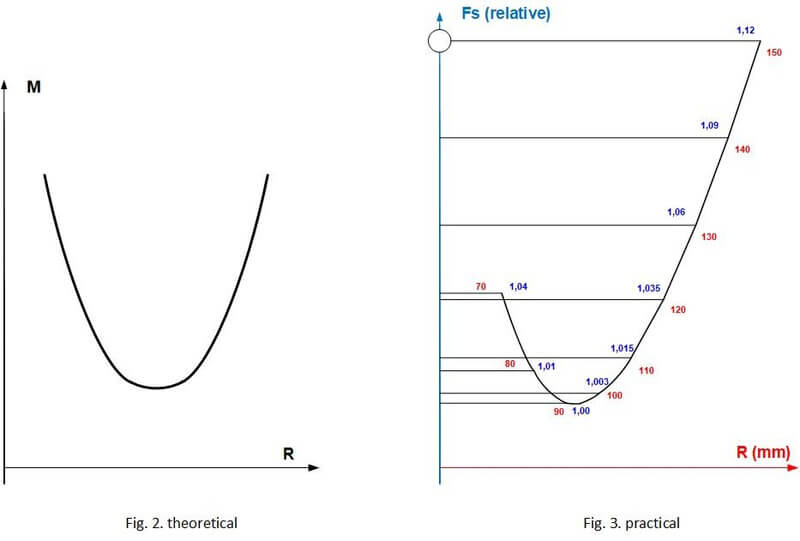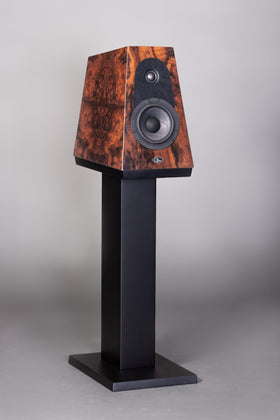Reed 2B Tonearm
Delivery time
This product might not be in stock. Please contact us for availability.
Reed's newest tonearm Reed 2B offers our users three new operating possibilities:
1) A possibility to use heavier cartridges, up to 35 grams. The low-friction, ceramic bearings are used in this tonearm;
2) Tonearm “2B” comes fully assembled; it is only needed to mount the tonearm and adjust settings like VTA, VTF, azimuth and anti-skating;
3) The anti-skating force can be easily changed independently at the beginning and end of the record. This feature is practical for all newer cartridges’ users, exceptionally because of a variety of the new cartridge’s stylus’ shapes causing different friction forces between the stylus and record groove.
Short theory.
As we already know, when a stylus rides in a groove, the friction force provides a forward force which is tangential to the record groove. (Fig.1. Anti-skating)
F = μN μ – coefficient of friction, N – stylus force (VTF).

Whereas the direction of this force F is displaced 90°+ α from the line between the pivot and the stylus O2-A, this force provides a clockwise moment M around the pivots O2 (Fig.1. Anti-skating), which tends to drag the stylus towards the spindle O1.
In case to avoid the force imbalance while the stylus bears against the inner groove wall, moment M should be eliminated completely at any position on the record. This moment can be expressed by the following equation:
![]()
While the F, L and D are constant factors, and R varies accordingly to the stylus’ position, moment M can be expressed as a function of R (Fig.2 Theoretical). Practically an experiment was executed to determine skating force at different points of a record. Instruments used for this test were: fully matte and smooth test vinyl and tonearm Reed 3P with a “Phasemation PP-2000MC” cartridge that was subjected to 1.9 grams vertical tracking force during testing (Fig 3. Practical). Differences in skating force are clearly noticeable at the beginning, middle and end of the record.

Theoretically, it is known that moment M can be eliminated by providing equal compensation in the opposite direction (-M). (Fig.1.). In most cases, M is applied as a constant force, therefore the side thrust is completely eliminated only at a few positions on the record. To conclude, a tonearm with adjustable anti-skating force depending on the position on the record (diameter) is highly demanded.
Tonearm “Reed 2B” has the possibility to control anti-skating force by adjusting two anti-skating regulation handles at any time while playing a record.
SPECIFICATIONS
| Effective length | 9.5″ | 10.5″ | 12″ |
| Mounting distance, mm | 223 | 251.6 | 295.6 |
| Pivot to spindle distance, mm | 223 | 251.6 | 295.6 |
| Overhang, mm | 17 | 15.4 | 13.4 |
| Offset angle, deg | 22.9 | 20.7 | 17.6 |
ARMWAND SAMPLE
| Wenge
|
Macassar Ebony
|
| Cocobolo
|
Teak light
|
| Teak dark
|
Approximate effective mass of Reed tonearm in grams
| Armwand | Effective lenght | ||
| 9,5″ | 10,5″ | 12″ | |
| Wenge | 10 | 12 | 14 |
| Makassar ebony | 12 | 14 | 18 |
| Cocobolo | 12 | 14 | 18 |
| Teak (light, dark) | 8 | 10 | 12 |
Click here for more information!














